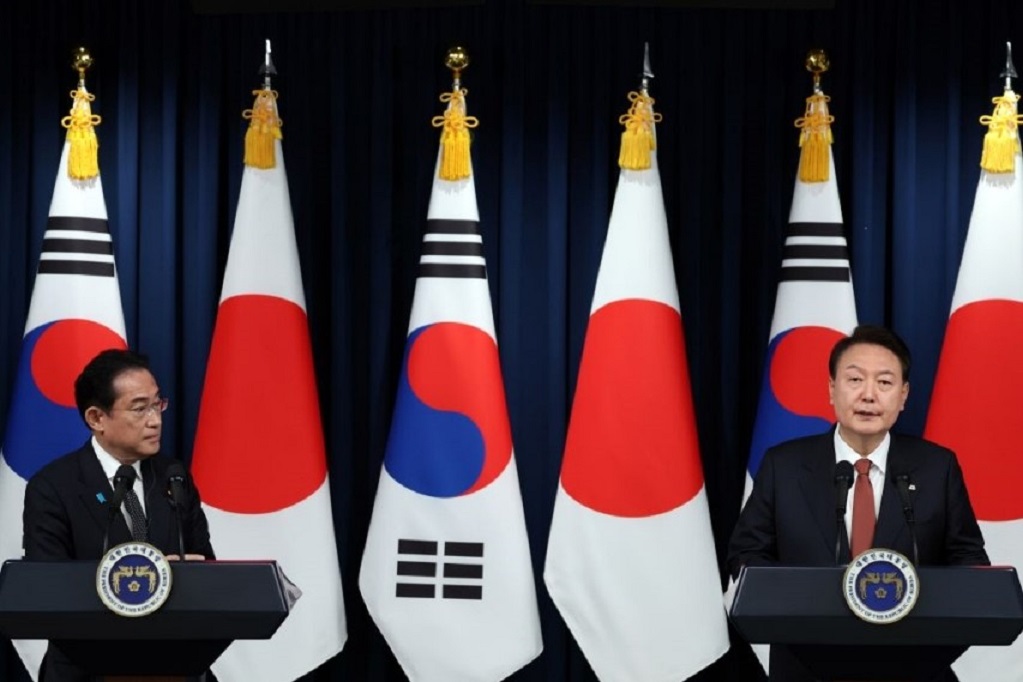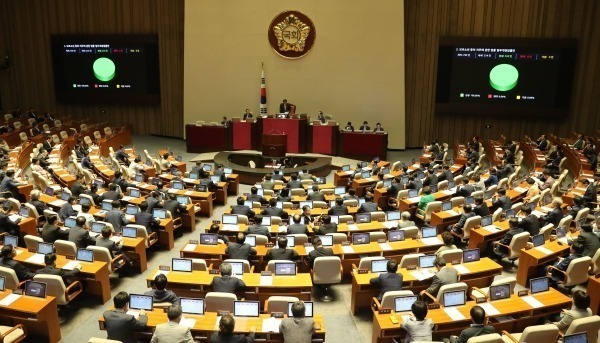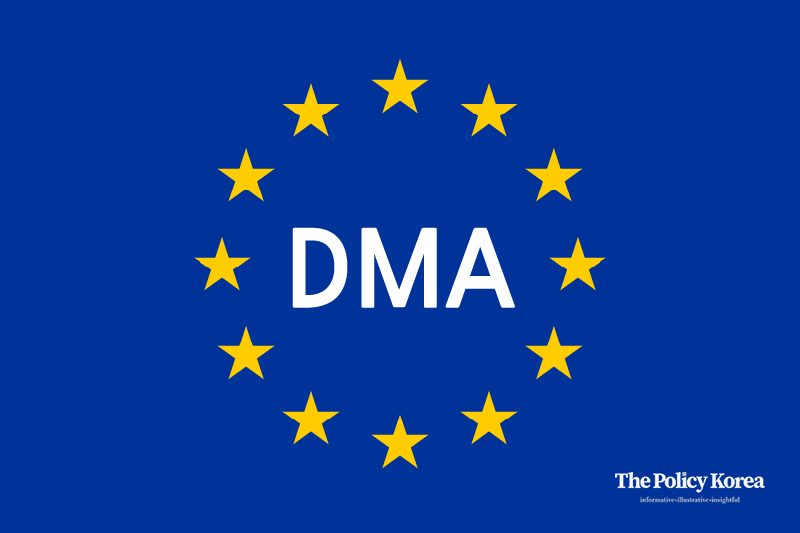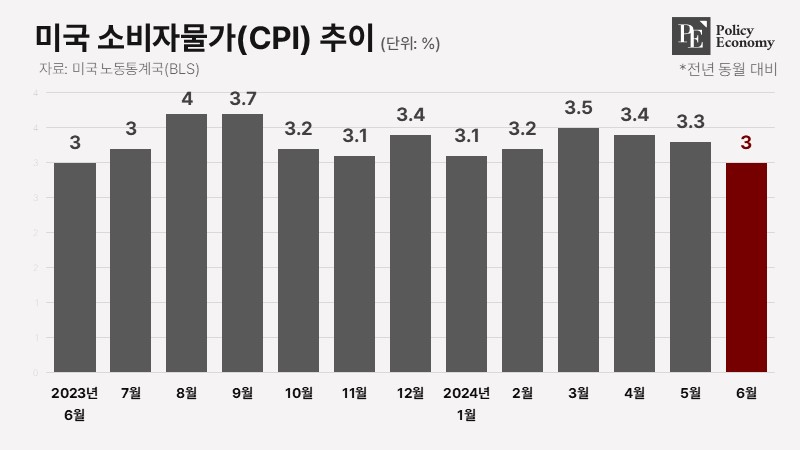[동아시아포럼] 한국·일본, 갈등 딛고 관계 개선한다
기시다 일본 총리 방한으로 한일정상회담 두 달 만에 다시 열려, ‘셔틀 외교’ 부활했다 윤석열 한국 대통령, 강제징용 피해자 제3자 변제 배상안 꺼내들며 한일관계 개선 국면 맞아 미래지향적 시각으로 한일관계 발전시켜야 하지만, 역사적 문제는 짚고 넘어가야
[동아시아포럼]은 EAST ASIA FORUM에서 전하는 동아시아 정책 동향을 담았습니다. EAST ASIA FORUM은 오스트레일리아 국립대학교(Australia National University)의 크로퍼드 공공정책 학교(Crawford School of Public Policy) 산하의 공공정책과 관련된 정치, 경제, 비즈니스, 법률, 안보, 국제관계 및 사회에 대한 분석 및 연구를 위한 플랫폼입니다.
저희 폴리시코리아(The Policy Korea)와 영어 원문 공개 조건으로 콘텐츠 제휴가 진행 중입니다.
2023년 5월 초 기시다 후미오 일본 총리가 한국을 방문하며 한일정상회담이 한 번 더 진행됐습니다. 윤석열 대통령의 방일로부터 고작 두 달 만이었죠. 이제 윤석열 정부에게는 국민의 지지를 얻어 양국 관계 개선을 확고히 해야 한다는 숙제가 남았습니다.

지난해 5월 임기를 시작한 윤 대통령은 취임 직후부터 한일관계 개선에 적극적이었습니다. 이전 정부와는 사뭇 다른 행보였죠. 윤 대통령은 일본이 협력 파트너임을 꾸준히 언급하며 미래지향적인 양국 관계의 필요성을 강조했습니다.
2018년 한국 대법원은 일제강점기 한국인 강제징용 피해자들이 신일본제철(현 일본제철)과 미쓰비시중공업을 상대로 낸 손해배상청구소송에서 두 기업의 손해배상 책임을 인정하는 판결을 내렸습니다. 이 판결은 한일관계 파탄의 시발점이 됐는데, 아베 신조 전 일본 총리를 비롯한 일본 정치권이 강하게 반발하며 무역 등 다른 분야에서 보복에 나섰기 때문입니다. 소송 당사자인 두 기업 역시 배상에 응하지 않았습니다.
그런데 올해 초 윤석열 정부가 새로운 카드를 꺼내 들었습니다. 바로 ‘제3자 변제’ 배상안인데, 일본 기업 대신 행정안전부 산하 일제강제동원피해자지원재단의 재원으로 배상금을 충당한다는 것입니다. 이 재원은 한일기본조약 체결 당시 수혜를 입은 기업들이 조성했습니다. 일본의 직접적인 사과 역시 요구하지 않았습니다.
일본 정부는 해당 배상안을 긍정적으로 받아들였고, 한일관계는 전환점을 맞이했습니다. 앞서 언급한 윤석열 대통령의 방일 때는 무려 12년 만에 한일정상회담이 재개되기도 했죠. 이어서 진행된 기시다 총리의 방한은 한국과 일본의 ‘셔틀 외교’ 부활을 뜻합니다.
지금이 한일관계 개선의 적기라는 건 한국과 일본의 여론 조사를 통해서도 알 수 있습니다. 지난 2022년 한국일보와 일본 요미우리신문이 공동으로 진행한 여론 조사에서는 양국 응답자의 상당수가 양국 관계가 개선되리라 믿고 있다고 응답했습니다. 한국인의 일본에 대한 신뢰도는 1995년 이후 가장 높게 나타났습니다. 윤 대통령의 방일 이후 일본 마이니치신문이 진행한 여론 조사에서는 한일관계 개선에 대한 일본의 기대가 높아졌고, 한국 정부가 내놓은 보상안이 긍정적인 평가를 받았다는 결과가 나왔습니다.
하지만 어떻게 해서 양국의 화해를 끌어내느냐는 또 다른 문제입니다. 지난 3월 한국갤럽이 조사한 바에 따르면 윤석열 대통령이 대통령 직무를 잘 수행하고 있냐는 질문에 무려 58%가 부정적인 평가를 했습니다. 긍정적인 대답은 34%에 불과했죠. 부정 평가 사유는 주로 일본과의 관계와 강제징용 피해자 보상 문제였습니다. 대통령 지지율 역시 2022년 7월 이후 30%대 초반에 머물고 있습니다.
해당 조사에서 조사 대상자 59%는 일본에 사과나 배상을 요구하지 않기 때문에 윤 대통령의 보상안에 반대한다고 대답했습니다. 한국이 일본의 태도 변화 없이 화해를 서두르면 안 된다는 응답은 64%, 일본 정부가 식민 지배라는 과거사를 뉘우치지 않는다는 응답은 85%에 달했습니다.
즉 한국인들은 일본을 더 신뢰하기 시작했고 일본 국민을 긍정적으로 바라보고 있으며 경제, 민간 그리고 안보상의 이유로 양국 관계가 개선되기를 간절히 바라고 있지만, 역사 문제에서는 물러설 생각이 없다는 것입니다.
한국과 일본의 화해에 있어 역사 갈등 해소는 필수적인 만큼 한국인 대다수가 일본의 사죄에 진정성이 없다고 생각하는 것은 큰 문제입니다. 지난 수십 년 동안 일본의 최고 지도자들은 사죄 의사를 수없이 내비쳤지만, 식민지 역사를 삭제하고 한국 피해자들의 진술을 무시하는 성명도 그에 못지않게 많이 나왔습니다.
윤석열 정부의 핵심 과제는 한국 국민과 일본 정부 사이의 격차를 해소하는 것입니다. 정부는 강제징용 피해자들의 의견을 보상 절차에 반영하고 피해자와 유가족의 고통을 존중하는 보상체계를 만들어야 합니다. 이번에 제안된 보상안에 일본 기업의 기금 출연 의무가 빠진 만큼, 윤 대통령은 일본 정부에 일본 기업의 기금 참여를 독려해 달라는 요청을 해야 합니다.
아울러 윤 대통령은 일본 정부에 차기 지도자들이 뒤집을 수 없을 만큼 구체적인 언어로 진정성과 반성의 뜻을 보여달라고 요구해야 합니다. 역대 정권의 담론을 계승하는 수준을 넘어서서 말입니다. 일본 정부는 과거의 잘못을 인정하고 책임을 인정한다는 것을 공식화해야 합니다. 전쟁 당시의 만행에 대한 법적인 책임을 받아들이는 것 역시 화해를 향한 결정적인 조치가 될 것입니다.
물론 일본 국민과 한국 정부 사이의 신뢰 격차를 해결하기 위해서도 큰 노력을 기울여야 합니다. 2015년 박근혜 전 한국 대통령과 아베 정권 간의 위안부 합의가 파기된 바 있기 때문입니다.
문재인 전 대통령은 박 전 대통령이 아베 전 총리와 비공개 합의를 한 사실이 밝혀지자 위안부 피해자 배상 합의를 위해 만들어진 화해치유재단을 해산했습니다. 이를 반복하지 않으려면 정부는 정부 차원이 아닌, 한국 사회의 다양한 이해관계자가 참여하는 투명하고 포괄적인 국내 합의 과정을 도입해야 합니다. 이를 통해 일본 정부와 국민은 한일관계 개선이 윤 대통령의 개인적 소망이 아님을 확신할 수 있을 것입니다.
미래지향적 시각으로 한일관계를 발전시키겠다고 해서 과거를 묻어도 되는 건 아닙니다. 역사적 유산의 본질과 효과에 대한 공통된 이해, 그리고 화해와 협력에 대한 서로 간의 굳건한 약속은 한국과 일본이 손을 굳게 잡고 미래로 나아가기 위한 필수조건입니다.
Strengthening progress in South Korea–Japan relations
With the conclusion of reciprocal visits between South Korean President Yoon Suk-yeol and Japanese Prime Minister Kishida Fumio in early May 2023, the Yoon administration must now consolidate their progress by garnering domestic public support for improving the bilateral relationship.
Since his inauguration in May 2022, Yoon has eagerly sought to improve the bilateral relationship with Japan, which deteriorated under the previous Moon Jae-in and Shinzo Abe administrations. He has continuously referred to Japan as a cooperative partner and emphasised the need for a future-oriented bilateral relationship.
In early 2023, Yoon’s government proposed a third-party compensation scheme for South Korean victims of forced labour during the Japanese colonial era. Voluntary contributions from South Korea’s private sector will fund the compensation money. This aims to alleviate the Japanese government’s outcry over two 2018 South Korean Supreme Court rulings that ordered Nippon Steel Corporation and Mitsubishi Heavy Industries to financially compensate their South Korean victims.
This helped Yoon win favour with the Japanese government, culminating in a summit in Japan in March 2023. Kishida’s reciprocal visit to Seoul on 7–8 May also signified the revival of ROK–Japan shuttle diplomacy, which has been dysfunctional since 2011.
Public opinion polls in both South Korea and Japan suggest that the time is ripe for warming relations. A 2022 joint public opinion poll by South Korean newspaper Hankook Ilbo and Japanese newspaper Yomiuri Shimbun found that a substantial percentage of respondents in both countries believed the bilateral relationship would improve. South Korean respondents’ level of trust towards the Japanese was found to be at its highest since 1995. A poll conducted by Mainichi Shimbun after Yoon’s visit to Japan shows greater Japanese expectations of improved bilateral relations and a positive evaluation of the South Korean government’s compensation mechanism.
But the desire for reconciliation and how to achieve it are two different issues. In March, Yoon’s disapproval rating was 58 per cent while his approval rating was 34 per cent, consistent with his approval rating hovering in the low 30s since July 2022. Key reasons for this disapproval were relations with Japan and the problem of compensating forced labour victims.
The same poll found that 59 per cent of respondents oppose Yoon’s proposed compensation mechanism because it does not demand an apology or reparations from Japan. 64 per cent of respondents believed that South Korea should not rush into reconciliation without a change in Japan’s attitudes. Another 85 per cent believed that the Japanese government is unrepentant of its colonial past.
These polls demonstrate that while South Koreans have begun to trust Japan more, have a positive perspective of the Japanese people and are eager for the bilateral relationship to improve for economic, civilian and security reasons, they are unwilling to concede their position on historical conflicts.
As the resolution of historical conflicts is a necessary condition for bilateral reconciliation, it is concerning for ROK–Japan relations that an overwhelming majority of South Koreans lack confidence in Japan’s sincerity in atoning for historical wrongs. Despite the abundance of apologies given by top Japanese leaders in past decades, there have been just as many statements that have sanitised colonial history and dismissed South Korean victims’ accounts.
A key task for Yoon and his government is to bridge this gap between the South Korean people and the Japanese government. The government should facilitate a compensation mechanism that procedurally includes the opinions of the forced labour victims and respects the pain of victims of the colonial period and their bereaved families. Given that Yoon’s proposed compensation mechanism does not require Japanese companies to contribute to the fund, Yoon must ask the Japanese government to actively encourage Japanese companies to match South Korean companies’ donations.
Yoon must also request that the Japanese government go beyond inheriting the discourse of previous administrations and demonstrate sincerity and remorse in specific language that will not be contravened by subsequent leaders. The Japanese government could establish its acknowledgement of past wrongdoings and acceptance of responsibility as an official and immutable policy. The Japanese government’s acceptance of legal liability for wartime atrocities would also be a decisive step towards reconciliation.
This is not to suggest that the consent of the South Korean people is the last missing piece in ROK–Japan reconciliation. Much should be done to bridge the trust gap between the Japanese people and the South Korean government as well, given the fallout from the breakdown of the 2015 Comfort Women Agreement between the former Park Geun-hye and Abe administrations.
The former South Korean Moon administration dissolved the Reconciliation and Healing Foundation — a product of the agreement to make reparations to comfort women survivors — after his taskforce found that former president Park made backroom arrangements with former Japanese prime minister Abe that were not disclosed to the public. Future administrations can prevent such revocation in ROK–Japan relations by adopting a transparent and inclusive process of domestic consensus building that includes various stakeholders in Korean society, rather than just the government level. This could assure the Japanese government and public that the improvement of bilateral relations is not Yoon’s individual ambition.
Advancing the ROK–Japan relationship with a future-oriented outlook does not mean that the past should no longer be discussed. It entails compromising on a common understanding of the substance and effect of historical legacy and a mutual commitment to reconciliation and cooperation. This will pave the way for a stronger, forward-looking diplomatic relationship.



























